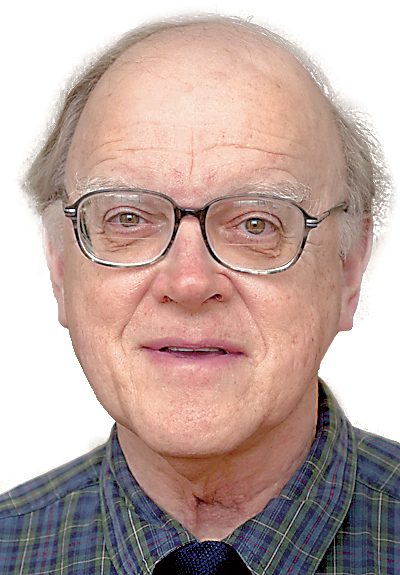From ample coverage in the media, we know of the water problems in California's Central Valley. During that state's sustained drought, agriculture has increasingly competed with communities for dwindling supplies of water from the vital aquifer lying beneath the valley. Recent, mandatory restrictions on water use in homes, businesses and farms may not be enough to address a steadily growing crisis.
The 20,000 square miles of the Central Valley provide 40 percent of our nation's fruits, nuts and grapes. The region is home to a population that has doubled since 1980 to 3.6 million, with further increases predicted. Like a chronically overdrawn bank account, the underlying aquifer faces irreparable depletion.
An aquifer is composed of porous rock that is saturated with water. Its upper surface is termed the water table and lies at varying depths beneath the ground. The resilience of an aquifer describes its ability to recharge so that equilibrium can be maintained. Depending upon its location, an aquifer can be recharged by rivers and streams, rainfall, snow melt - sometimes from distant mountains - and glacial melt.
Chronic depletion of an aquifer leads to gradual sinking of the land and dry wells. Saltwater also may seep into the failing system.
The Central Valley is one of 37 of the world's largest aquifers to be investigated in a 10-year study reported last month in Water Resources Research. Using sophisticated satellite mapping, scientists assessed the status of these vital, natural reservoirs as they respond to increasing stresses of population, agriculture and accelerated climate change. This is the first study of its kind to quantify the world's supply and use of water.
Thirteen of the 37 aquifers are severely stressed. Northeastern India, much of the Arabian Peninsula and large portions of North Africa face severe depletion of vital aquifers. A large aquifer that extends from Southeastern Texas across the Gulf Coast through Florida and up the Atlantic Coast is also being progressively depleted. Dense populations and high demand for irrigation of farmlands create unsustainable usage for these systems.
Two billion of the world's 7.3 billion people depend on these aquifers for their immediate water needs. Falling supplies will lead to increasing conflicts among nations over access to water. Populations facing chronic water shortage will have no alternative except immigration to surrounding countries, which will raise tensions. Agricultural economies will falter. Food will become scarce in some areas, progressively more expensive in others.
Alfred E. Neuman, the red-haired boy on the cover of Mad magazine, uttered the famous line, "What? Me worry?" That attitude characterizes many politicians and policy makers. They have short horizons, focusing more upon the next election than on slowly progressing threats to our very civilization. Among them are some who deny the relevance of any scientific data. Lobbyists who represent interests that are high users of water, even in regions of worsening shortage, will seek to block anything that smacks of regulation of water resources.
The availability of water for people and the food that sustains them cannot be taken for granted. Informed discussion and formulation of alternatives to our current wasteful ways must occur at every level of government, commerce, agriculture and education. Ignoring a potentially deadly problem gains us nothing.
Contact Clif Cleaveland at cleaveland1000@comcast.net.

